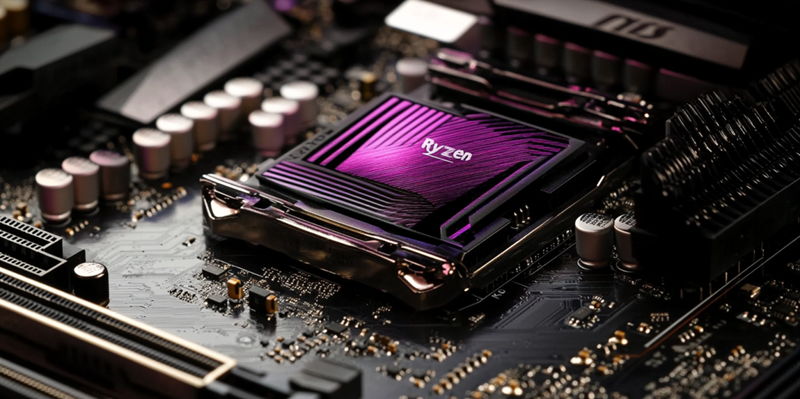MSI’s recent announcement about full support for AMD’s latest Ryzen 7 9800X3D on its 800 and 600-series AM5 motherboards marks a pivotal moment for enthusiasts and gamers alike. The integration of this powerful CPU, which is built on the cutting-edge Zen 5 architecture, into existing motherboards via a BIOS update showcases MSI’s commitment to future-proofing its hardware. This move is particularly significant, owing to the high computing and gaming performance the Ryzen 7 9800X3D promises. With an 8-core, 16-thread configuration, a base clock of 4.7 GHz, and a boost clock reaching up to 5.2 GHz, this processor is designed to cater to the most demanding applications and workloads.
The update comes in the form of a BIOS patch identified as AGESA 1.2.0.2a, which is necessary for the motherboard to recognize and work seamlessly with the new CPU. This not only increases compatibility with the Ryzen 7 9800X3D but also paves the way for future high-end chips like the Ryzen 9900X3D and Ryzen 9950X3D. By extending this support to both 800 and older 600-series motherboards, such as those based on the X670/E and B650/E chipsets, MSI has ensured that a broader range of users can benefit from the latest technology without needing a complete hardware overhaul. This compatibility is facilitated by the shared AM5 socket, which offers advanced features including PCIe Gen 5 bandwidth and DDR5 memory support.
Boosted Performance and Future-Proofing
One of the primary advantages for Ryzen 7 9800X3D users stemming from MSI’s update is the significant enhancement in performance metrics. The processor, fabricated using a 4nm process, promises substantial improvements in power efficiency and computing power over its predecessors. This makes it an attractive option for users seeking optimal gaming and productivity performance. The AM5 socket ecosystem’s offerings, such as DDR5 memory speeds and PCIe Gen 5 bandwidth, further bolster these performance metrics. These advancements ensure users experience seamless gaming and multitasking capabilities, reducing latency and supporting higher data throughput.
Moreover, MSI’s proactive approach in releasing this BIOS update highlights their dedication to improving user experience. By facilitating compatibility with future CPUs, MSI ensures their users are well-prepared for subsequent upgrades. This forward-thinking approach doesn’t just promote ease of use but also signifies a financial benefit. Users no longer need to invest in new motherboards when upgrading to newer CPUs within the same ecosystem, thereby protecting their existing investments.
AMD Ryzen 7 9800X3D: A Leap in Technology
MSI recently announced full support for AMD’s latest Ryzen 7 9800X3D on its 800 and 600-series AM5 motherboards, marking a significant moment for tech enthusiasts and gamers. This powerful CPU, built on the advanced Zen 5 architecture, can now be integrated into existing motherboards using a BIOS update. This highlights MSI’s dedication to future-proofing its products. The Ryzen 7 9800X3D offers exceptional gaming and computing performance with its 8-core, 16-thread configuration, 4.7 GHz base clock, and boost clock up to 5.2 GHz, making it an ideal choice for demanding applications.
The necessary BIOS patch, identified as AGESA 1.2.0.2a, ensures the motherboard recognizes and operates seamlessly with the new CPU. This update not only enhances compatibility with the Ryzen 7 9800X3D but also sets the stage for future high-end processors like the Ryzen 9900X3D and Ryzen 9950X3D. MSI’s decision to extend this support to both the latest 800-series and the older 600-series motherboards, including those based on the X670/E and B650/E chipsets, allows a wider range of users to access the latest technology without needing a complete system upgrade. The shared AM5 socket supports advanced features like PCIe Gen 5 and DDR5 memory.

